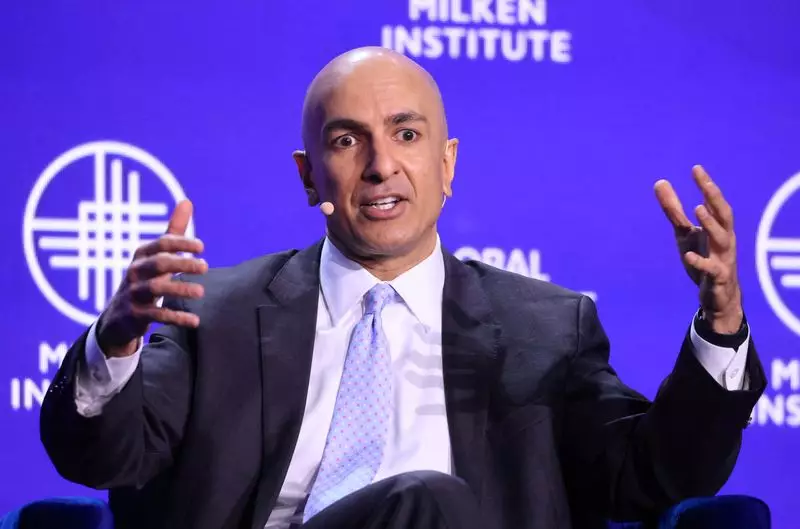As the U.S. navigates a complex economic landscape, the role of the Federal Reserve remains central to discussions surrounding monetary policy. Minneapolis Federal Reserve President Neel Kashkari recently articulated confidence in the Fed’s strategy post-election, emphasizing a bipartisan consensus on the need to combat inflation and sustain economic momentum. In his recent appearance on Fox News, Kashkari underscored that both major political parties share a vested interest in promoting a strong economy, which he believes mitigates any potential conflicts that may arise with the presidency.
Kashkari’s remarks came in light of the Fed’s decision to reduce the benchmark interest rate, a move aimed at stimulating economic growth amidst ongoing uncertainties. The rate was adjusted to a range of 4.5% to 4.75%. This decision marks a pivotal moment, showcasing the Fed’s ongoing commitment to navigate inflationary pressures while fostering a robust economic environment. However, Kashkari stopped short of using this platform to speculate on further rate cuts in the immediate future.
Economic Resilience Amidst Challenges
The resilience of the U.S. economy has surprised many analysts and officials alike. Kashkari noted that recent productivity gains and economic stability could suggest a need for rates to potentially increase rather than decrease. His acknowledgment of strong growth reflects a cautious optimism, yet he remains watchful. As Kashkari expressed, “If that is sustained and we are in a structurally more productive economy going forward, that tells me we wouldn’t end up cutting as far.” This statement encapsulates a forward-looking perspective that seeks to balance immediate policy decisions with long-term economic forecasts.
What is particularly striking is how Kashkari appears to embrace the challenges presented by the Trump administration. The president’s previous criticisms of Fed Chair Jerome Powell regarding interest rate policies raised the specter of friction between fiscal and monetary authorities. Nevertheless, Kashkari’s faith in established economic frameworks underscores a commitment to impartial policy execution, irrespective of political affiliations. He expressed confidence that the institutional mechanisms in place compel the Fed to focus on its economic responsibilities, aligning with the broader goals of controlling inflation.
As the Federal Reserve grapples with both political dynamics and economic realities, Kashkari’s insights reveal a pragmatic stance towards maintaining financial stability in a complex environment. The synergy between a strong economy and a commitment to inflation control forms the backbone of the Fed’s ongoing strategy.
The interplay of political will and economic policy will undoubtedly continue to shape the future financial landscape in America. With leaders like Kashkari at the helm, the emphasis on sustained growth and inflation management suggests a commitment to prudent fiscal practices, which is essential for long-term economic health. In light of these developments, it will be crucial for stakeholders to monitor how these policies evolve, particularly as external pressures fluctuate and the economic conditions shift.

